Why Are Coral Reefs Important?
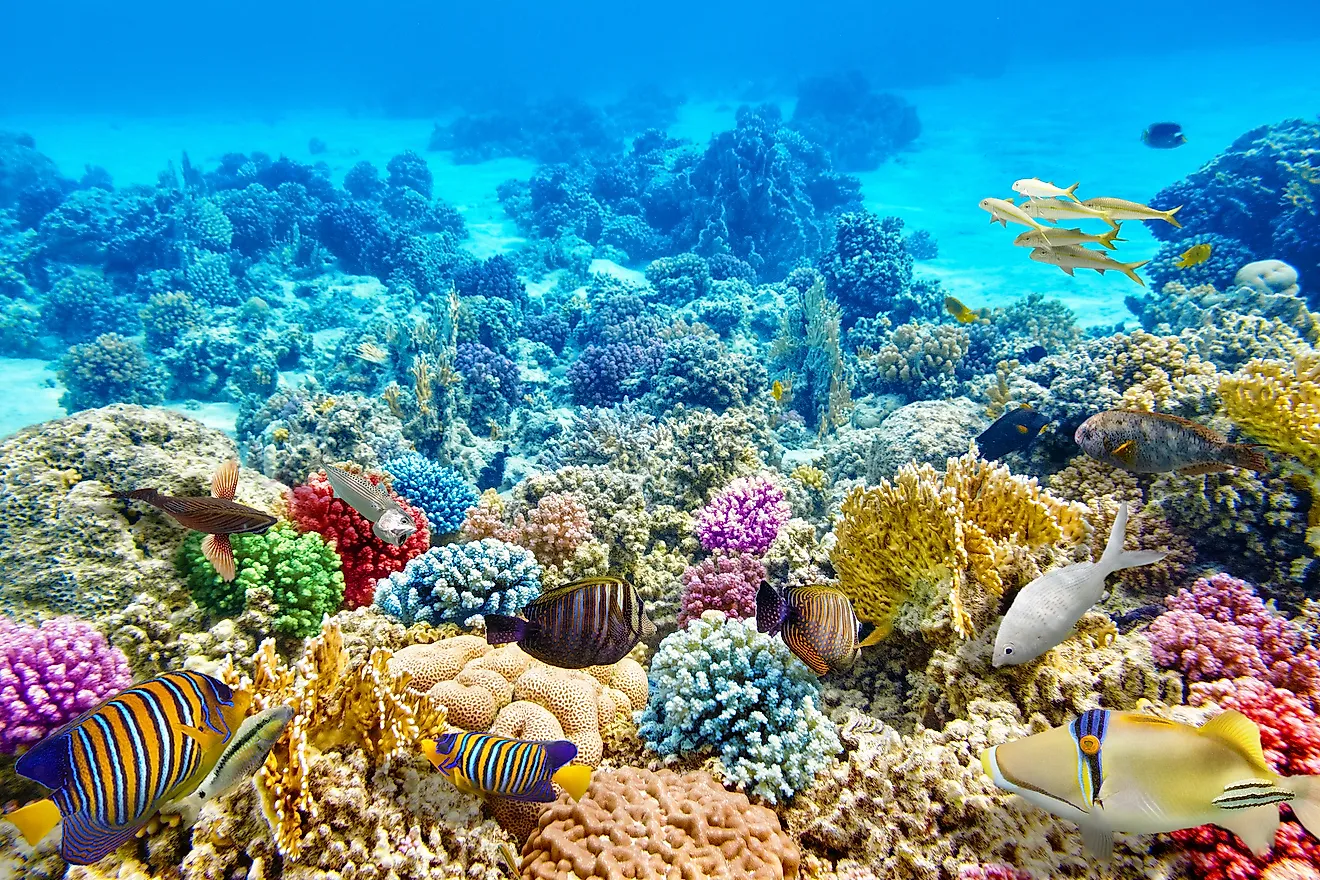
- Referred to as the "rainforests of the sea", the coral reefs are renowned for their rich biodiversity.
- Coral reefs provide a safe habitat, nursery grounds and hiding places for thousands of species of marine fauna
- Coral reefs deliver a range of ecosystem services like coastal protection, food security, nutrient cycling and carbon fixation, etc.
Coral reefs are highly productive marine ecosystems that serve as a home to a great diversity of marine flora and fauna. Coral reefs are extremely valuable and beneficial in terms of the ecosystem services they provide. Some of the valuable roles of coral reefs have been listed below:
Content:
- High Biodiversity
- Nutrient Cycling And Carbon Fixation
- Water Filtration
- Food Security
- Economic Importance
- Intrinsic Value
- Coastal Protection
- Medicinal Sources
High Biodiversity
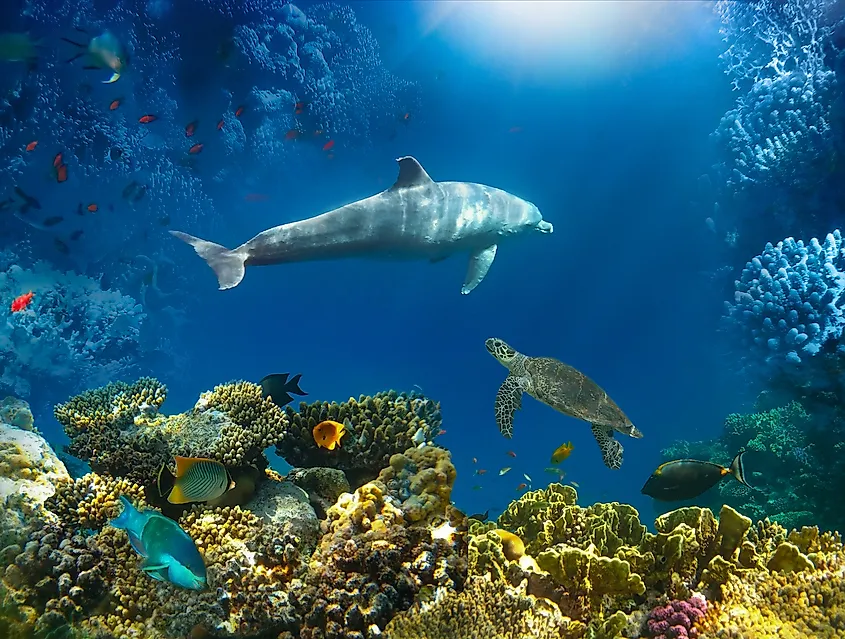
The coral reef ecosystems are referred to as the ‘rainforests of the sea’, and are widely known for their high biological diversity. Although the reefs occupy less than 0.1% of the world’s ocean area, they support about 250,000 known marine species on the planet – which includes over 4,000 fish species, 700 coral species, and thousands of other marine flora and fauna. It has been estimated by scientists that over a million species are associated with coral reefs, which also provide a perfect habitat and a safe hiding place for an incredible variety of fishes, crustaceans, echinoderms, mollusks, sponges, anemones, sea turtles, and other marine faunal species. Each of these animals plays an important and unique role in the reef ecosystem either by filtering water, consuming the prolific algae, or by keeping a particular species under control. Besides this, the different types of small biota and planktons also serve as food for the larger fishes that inhabit the reefs. By supporting such a high variety of flora and fauna, the coral reefs help to maintain a functional ecological balance between the different predator and prey species.
Nutrient Cycling And Carbon Fixation
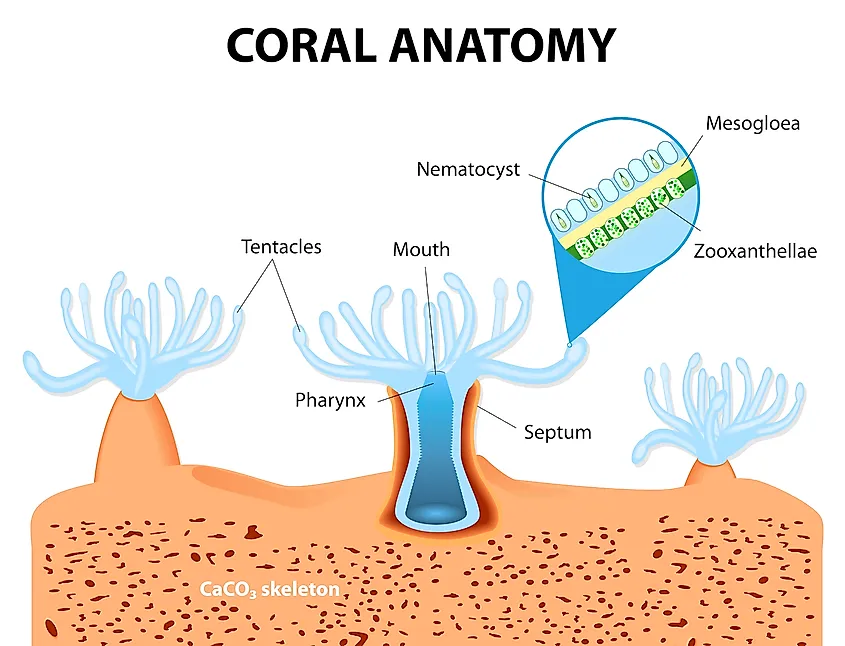
Corals form a close mutualistic association with a microscopic single-celled photosynthetic alga, called zooxanthellae that resides inside each of the coral polyps. The polyps ingest minerals and small organisms, digests them, and deposits the calcium carbonate on the skeleton. The zooxanthellae feed off the nitrogen waste and provide oxygen for photosynthesis, as well as organic matter that are used as nutrients by the corals. The photosynthetic process helps in carbon fixation by transforming the inorganic carbon into organic carbon. The organic carbon is then released into the surrounding water by the corals, as dissolved organic matter (coral mucus). This mucus acts as a food source for many reef organisms and forms a base for the rich marine ecosystem. Through this process, the corals regulate the carbon dioxide levels in the oceans. Without coral reefs, there would be an imbalance in carbon dioxide levels which would severely impact all marine creatures.
Water Filtration
The majority of the individual corals and sponges are filter-feeders and consume particulate matter that is suspended in the ocean water. This helps in maintaining the water quality near the shores and, in turn, facilitates the survival of marine flora and fauna.
Food Security
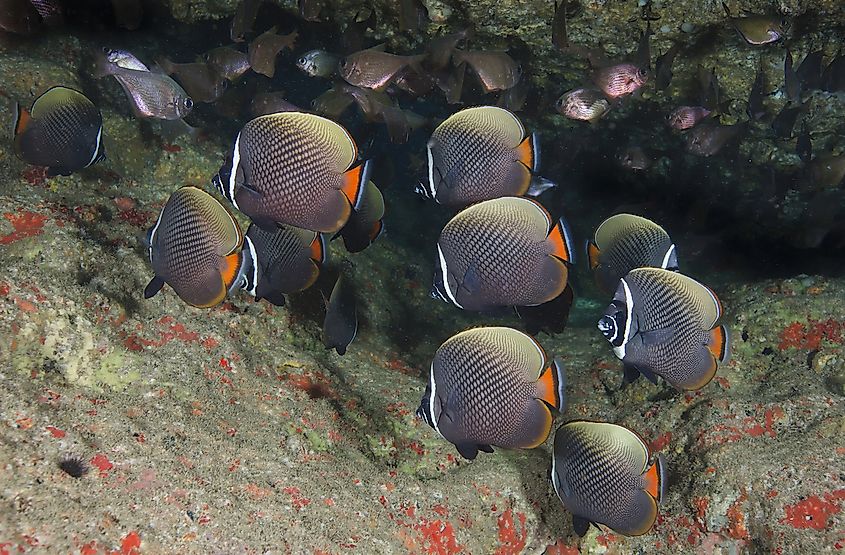
Coral reefs also serves as nurseries for several commercially valuable edible fish species. Fishes have been a primary source of protein for the people residing in the coastal areas. Lobsters, crabs, and local fishes also depend on the reef for their spawning and habitat. About 1 billion people are dependent on coral reefs for their food and livelihood from the fisheries. If these reefs are properly managed, they can annually yield more than 15 tons of fish and other seafood per sq. km of the reef’s area.
Economic Importance
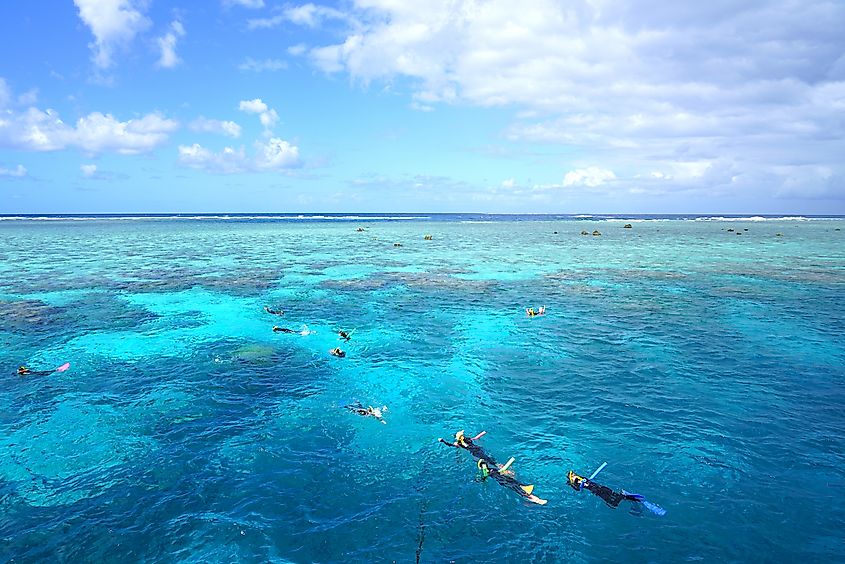
Coral reefs form the backbone of regional economies. Coral reef-based tourism and recreational activities like scuba diving and snorkeling provide additional sources of income for the poor coastal communities. The yearly global economic value of the colorful and diverse coral reefs has been estimated between US$29.8 billion and US$375 billion, while more than 500 million people worldwide are dependent on the reefs for their livelihood. It has also been calculated that ‘The Great Barrier Reef’ generates more than US$1.5 billion annually from fishing and tourism activities, thus contributing a major share for the Australian economy.
Intrinsic Value
Coral reefs and their inhabitant marine species are intricately woven into the cultural traditions of many coastal societies throughout the world. Corallum rubrum (Red Coral) is considered to be an auspicious precious stone in India and China. Due to their high calcium carbonate content, the coral skeletons also serve as raw materials for the preparation of lime, mortar, and cement.
Coastal Protection
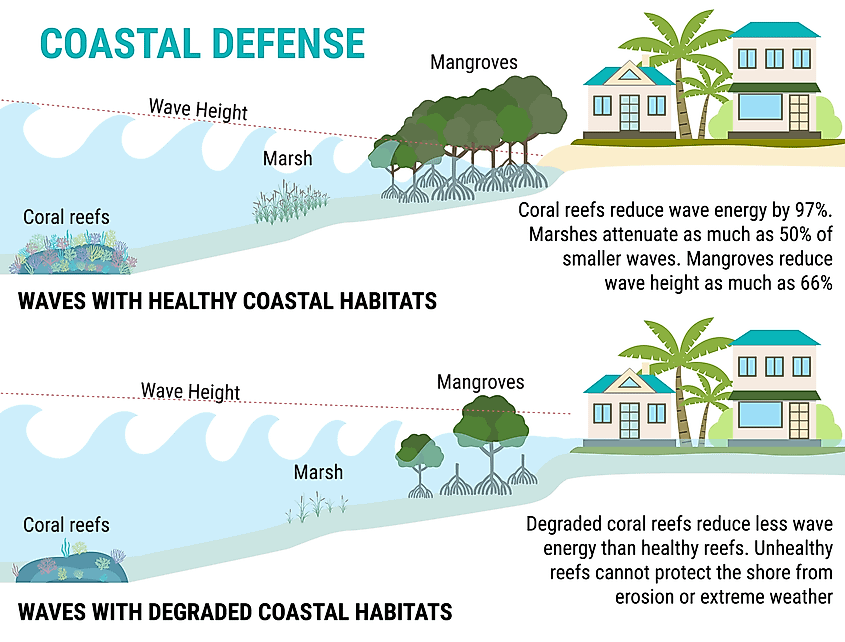
The reef-building stony corals serve as natural marine barriers that dissipate the high impact waves during hurricanes, tropical storms, ocean currents, and tidal surges thereby reducing the damage on coastal communities and beaches. The reefs also help to prevent coastal erosion, flooding, and the loss of infrastructure, thereby reducing huge costs that are involved due to the destruction and subsequent displacement caused by extreme weather events. They also help to stabilize the mangroves and seagrass beds, which otherwise could be easily uprooted by the large waves. Hence without the coral reefs, many of the world’s most fragile and delicate coastal ecosystems would not survive.
Medicinal Sources
The coral reef ecosystems are referred to as the “medicine chests of the sea”. Several marine species like sponges, sea squirts, snails, and other organisms that reside in the coral reefs, produce chemical compounds that act as important sources of new medicinal drugs. Scientists and researchers have developed treatments for cancer, Alzheimer’s, arthritis, asthma, ulcers, and cardiovascular diseases; all from the chemical compounds produced by the reef flora and fauna. Many coral species have also been used to prepare Traditional Chinese medicines and some hard coral species have been used to prepare bone grafts.











